Foundation for Rural & Regional Renewal (FRRR)
FRRR has awarded five grants totalling $150,152 to a range of community groups in Taree and Wingham. These grants will enable local groups to invest in resources and build their capacity to support their communities’ ongoing recovery following the 2019/20 Black Summer bushfires and floods earlier this year.
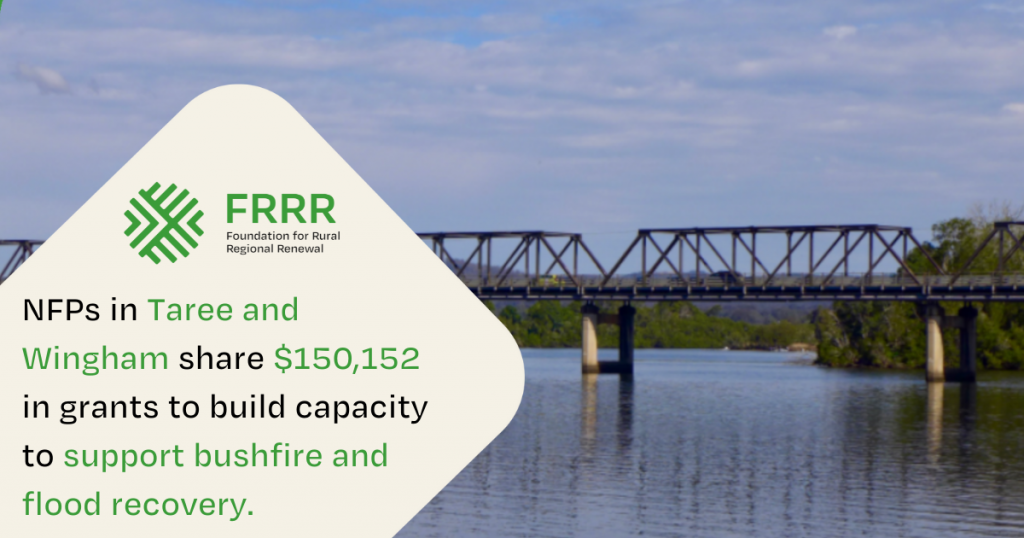
Funded through the Investing in Not-for-Profit Capacity in Regional NSW (INFPC) program, which is generously supported by the Paul Ramsay Foundation and a Taree-specific donor, these grants are part of an 18-month program. The program kicked off with a community workshop in October, where FRRR and local groups discussed local issues and how they could be resolved with community-led solutions.
This round of applications saw requests to support many of the issues raised during that session, including strategic and operational planning, marketing, revenue strategy and a digital solution to support volunteers and NFP organisations.
Joanna Kemp, FRRR’s INFPC Program Manager, said that there were many common themes among participants and community groups.
“Uncertainty and volunteer fatigue are real concerns for NFPs in Taree and Wingham, and in fact it’s something that FRRR is consistently hearing from rural organisations across the country. The cumulative impacts of disasters like fires, floods, the mouse plague and COVID-19 mean that community groups simply don’t have the volunteers, resources and training that they need in order to tackle the issues in front of them.
“The applications for this funding also align with what we heard in our recent Heartbeat of Rural Australia study – volunteer fatigue, excessive red tape in many grant application processes and a lack of resources are making it challenging for rural community groups. These are all issues that also came up during our community workshops, which is why we are delighted to be able to offer programs like INFPC that help address some of these issues.
“From engaging with these organisations, it’s apparent they have an unwavering commitment to bringing positive change to their communities’ and to becoming more prepared in the days ahead. The grants will allow these not-for-profit organisations to scale their operations and continue to provide essential services to their community as they recover from successive disasters,” said Ms Kemp.
The five grant recipients are:
- Circartus Incorporated, Wingham – Making the Most of What We Have – Boost the capacity and future sustainability of local circus school, Circartus Inc, through the development of a strategic plan and webpage design. $10,152
- First Steps Count Incorporated – Genuine Co-design with Community, Taree – Engage community in the development of the operational plan for a new community hub servicing children and families in Taree by resourcing a Co-Design Coordinator role. $25,000
- Mid Coast Outreach Incorporated, Wingham – Mid Coast Outreach – Office and Marketing Support – Grow the capacity and profile of newly established organisation, Mid Coast Outreach, through support for human resources, branding & marketing, and IT infrastructure. $34,000
- Mission Australia, Taree – Mid Coast 4 Kids Revenue Strategy – Boost the operational capacity of ‘Mid Coast 4 Kids’, collective impact project seeking positive social outcomes for children, young people and families, through the development of a revenue strategy. $6,500
- Wingham Chamber of Commerce, Wingham – Not-for-Profit Portal – Build the capacity of not-for-profit organisations in Taree and Wingham through consultation and development of shared digital tools to improve volunteer efficiency and effectiveness, and overall organisational capacity. $74,500
For more information about the Investing in Not-for-Profit Capacity in Regional NSW program, visit – https://frrr.org.au/investing-in-not-for-profit-capacity-nsw/.
Suncorp Group today pledged $1 million to FRRR for a dedicated program to support rural Australian communities impacted by significant natural disasters.
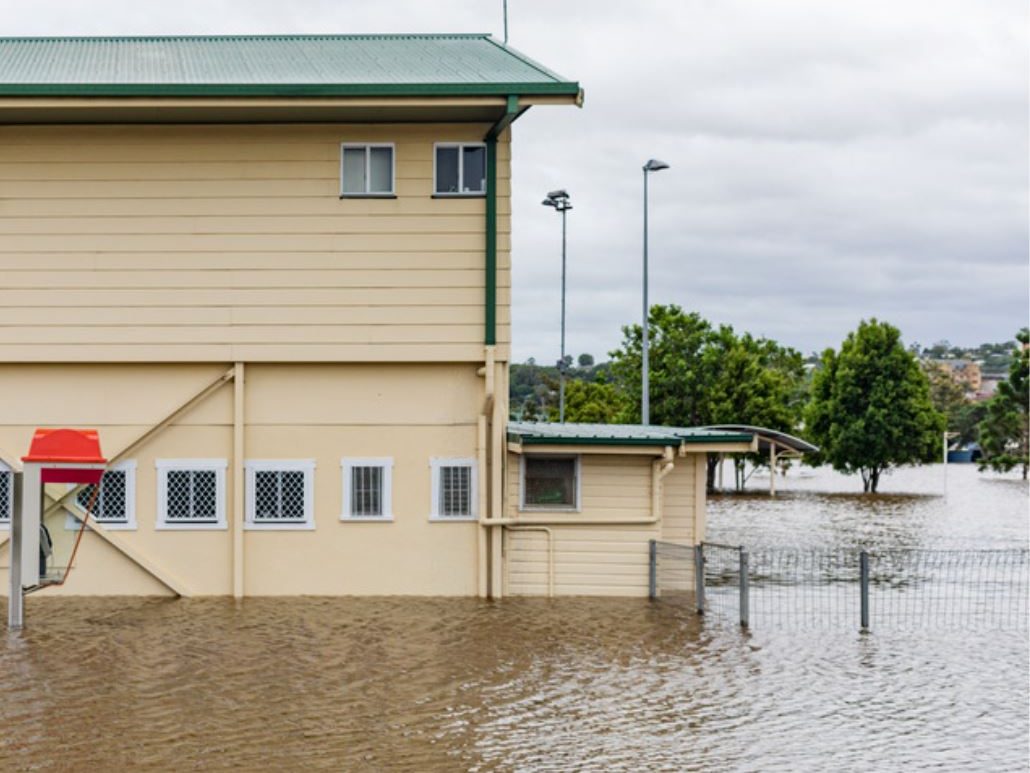
The first Rebuilding Futures program grant round opens today and closes on 15 September, with $200,000 available through grants of up to $15,000 each for local community groups and not-for-profits in areas impacted by flooding in March 2021. Successful grants will be announced in November 2021.
Natalie Egleton, CEO of FRRR said the Foundation is delighted to be partnering with the Suncorp Group on the dedicated funding initiative.
“From our many years working alongside communities as they recover from natural disasters, we have learnt that recovery is a marathon and local community groups and not-for-profits need funding for diverse recovery initiatives, as their needs evolve over time,” Ms Egleton said.
Suncorp Group CEO Steve Johnston launched the first round of grants to help NSW and Queensland communities impacted by flooding in March 2021.
“These communities are dealing not only with COVID-19, but the significant impacts of flooding,” Mr Johnston said.
“I’ve seen first-hand the devastation and emotional toll of natural disasters, which is why we are supporting affected communities to not just build back but to make themselves more resilient than before.
“As an insurer and bank our job is to help our customers to physically and financially rebuild, but we know the full recovery process continues for years after people are back in their homes. Through our long-term relationships with customers across Australia we see the importance of supporting wellbeing and the lasting value of a community’s spirit.
“Communities are best placed to steer their own future which is why these grants empower locals to come together to identify and design local solutions.”
FRRR facilitates funding and capacity building at the local level. It has the relationships and know-how to distribute grants to fund community-led solutions that build resilience and long-term viability of remote, rural, and regional communities across Australia.
“This program, with a focus on the medium to long-term needs and building back better, will mean that when there are significant disasters, the support will be available for local groups to address issues that are important to recovery, to rebuilding the sense of place that is often so badly damaged through events like the floods we saw in NSW earlier this year,” Ms Egleton said.
Grantseeker Workshop
To support community groups and not-for-profit organisations in the eligible remote, rural, and regional communities impacted by the Storm and Flood events of March 2021 to develop their grant applications FRRR will hold a free online grantseeker workshop. The interactive session will provide key program information and helpful tips on how to apply for a grant.
The workshop will take place on Wednesday, 25 August, 1:00pm to 2:30pm AEST.
Attendance is free, but people are asked to register at: https://events.humanitix.com/suncorp-rebuilding-futures-grantseeker-workshop.
For more information contact Danielle Griffin or Fiona Bradshaw at info@frrr.org.au or on 1800 170 020.
More information on the Suncorp Rebuilding Futures grant program is available here.
Support needed now more than ever for communities hit by multiple disasters
Port Macquarie, on the mid-north coast of New South Wales, is just one of many towns reeling from the effects of cumulative disasters. In their case, it began in July 2019 with devastating bushfires that affected many communities across the region. The fires burned until January 2020. Homes, livelihoods and, sadly, lives were lost.
Then in March 2020, COVID-19 hit, decimating visitor numbers and the vital income they bring with them, and restrictions hampered bushfire recovery activities. These cumulative impacts meant many retailers, cafes, pubs, restaurants, tourism and accommodation providers were forced to let staff go or, for some, to close.
In March 2021 – with COVID-19 and bushfire recovery still ongoing – the region was inundated by a one in 100 year flood. Thousands of people were evacuated, and five months later, many have still not been able to return to their homes. Today, pockets of the community are still without electricity.
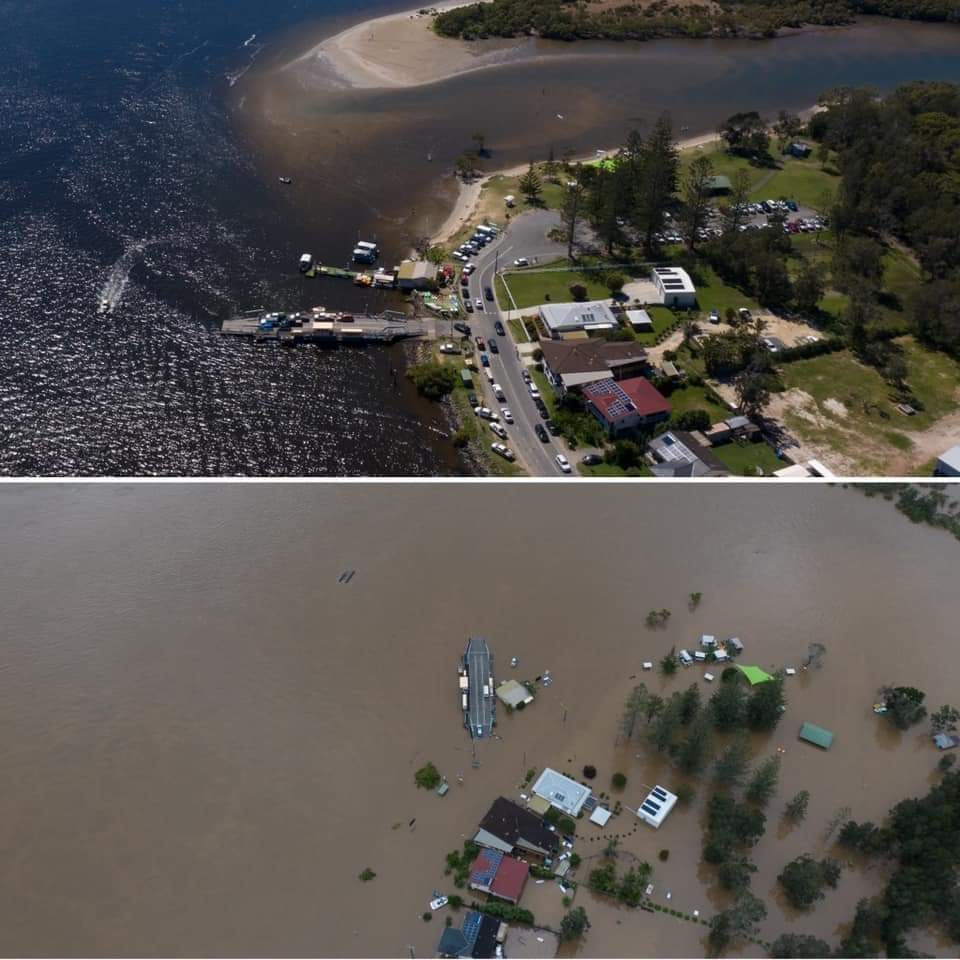
Fewer resources, but more to do
The struggle for small organisations trying to support their community is very real, even in normal times. So, when events like the bushfires, floods and COVID-19 place greater demands on their services, their capacity is challenged. But they fight on!
Make a Difference Port Macquarie (MAD PMQ) is a local support agency helping their community to respond to these events. Over the last year, they’ve had to work through how to do more, with fewer people. When COVID-19 hit, MAD lost their volunteer base almost overnight because most of their volunteers are elderly or retired and are very vulnerable. The pandemic also had a huge impact on the organisation’s fundraising. Like many small community organisations, MAD PMQ relies heavily on events to raise the funds required to deliver their services.
Volunteer Erin Denham said they generally run four or five fundraising events a year but were only able to run one in the last year, and that’s had a massive impact on revenue. MAD PMQ was supported by an FRRR grant that funded the stage for that event and the fit out of their mobile coffee van.
“When we got the FRRR grant, it took so much pressure off us as a charity – we hadn’t been able to run a fundraising event in nine months, and we couldn’t see a way out of COVID-19. The grant allowed us to continue our plan for our projects and support our community.”
As successive disasters have hit the community, MAD PMQ has adapted and expanded its role.
“Our focus has shifted dramatically since our inception,” Erin said. “It was originally homelessness. Now we’ve moved to supporting a wider range of disadvantaged people, so our work shifts and adapts based on the needs of the community and what’s happening around us, like fires or floods. The homeless population is transient, but there are just as many people in the community who need our help that go beyond that demographic.”
When the floods hit in March, their greatest priority was helping to address the immediate needs of those affected by the floods, particularly getting people back in their own homes by supplying white goods such as fridges, washing machines and ovens.
“It’s been a massive effort,” Erin explained. “We’ve raised approximately $50,000 so far, which we’ve since redistributed in white goods and other requests. But it feels like the funding is starting to dry up, and the demand is greater now than it was immediately after the floods.”
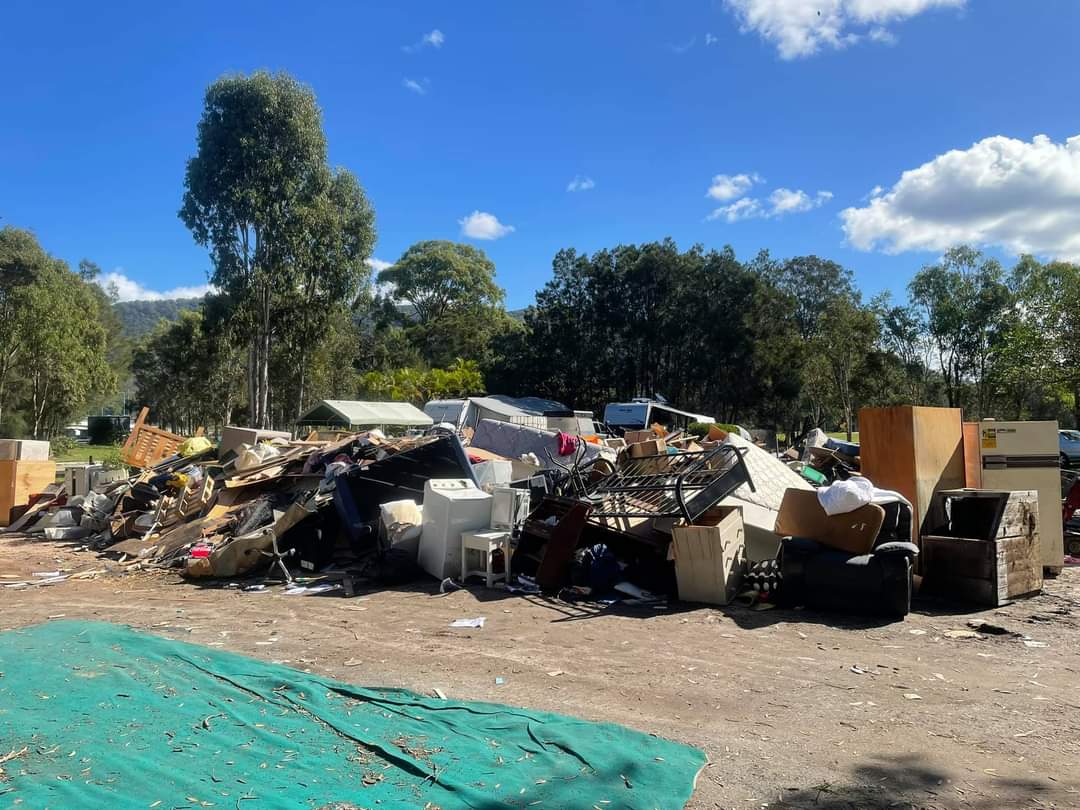
Emerging impacts
In fact, demand for MAD’s services is the highest they’ve ever seen, and Erin says she thinks it will continue to increase as the full impact of the “triple-whammy” of disasters takes effect.
Erin said that while there was lots of help immediately following the fires and floods from external organisations and agencies, the responsibility is now falling on the small organisations within the community to pick up the load and continue to meet the ongoing needs of a community impacted by natural disasters.
“Most of the people provided with emergency accommodation until the end of June or early July are starting to have to move on, and demand for assistance to MAD PMQ is increasing.
“Everyone’s gone back to business as usual, you can’t tell by driving through town that anything happened,” Erin said.
“Just last week we came across a gentleman who is still living in his flood-affected caravan, with no power or running water. His caravan was written off, but he’s got nowhere else to go. We provided him with a generator, so he at least has some power.
“And I’m aware of a 65 year old man who was living in a tent in his back yard, while his wife was in emergency accommodation. They were separated for months after the floods happened. The housing crisis and gentrification are big problems, with people relocating from Sydney, and many people being pushed out of the rental market. And while they might be eligible for grants, often they can’t meet all of the requirements that’s needed and therefore they miss out on funding.”
Erin said that support through FRRR, such as the new Suncorp Rebuilding Futures program, allows community organisations to be responsive in the aftermath of the situation. By offering funding support for charities like MAD, the program will allow them to help residents get back into their homes faster.
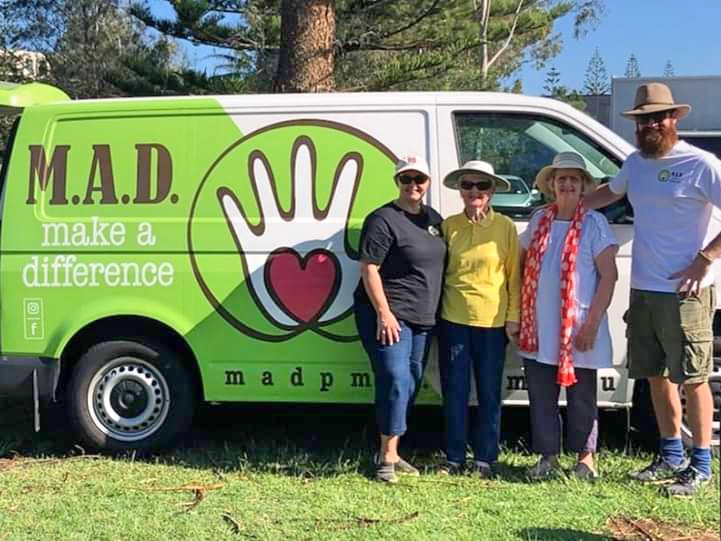
Images: Alex McNaught
Focus on medium to long-term recovery in flood-affected rural communities in NSW & QLD
FRRR has launched a Flood Recovery Appeal to support remote, rural and regional communities in New South Wales and Queensland devastated by this month’s floods. Donations can be made to the Appeal in general, enabling FRRR to distribute the funds where needed, or allocated to specific regions or communities.
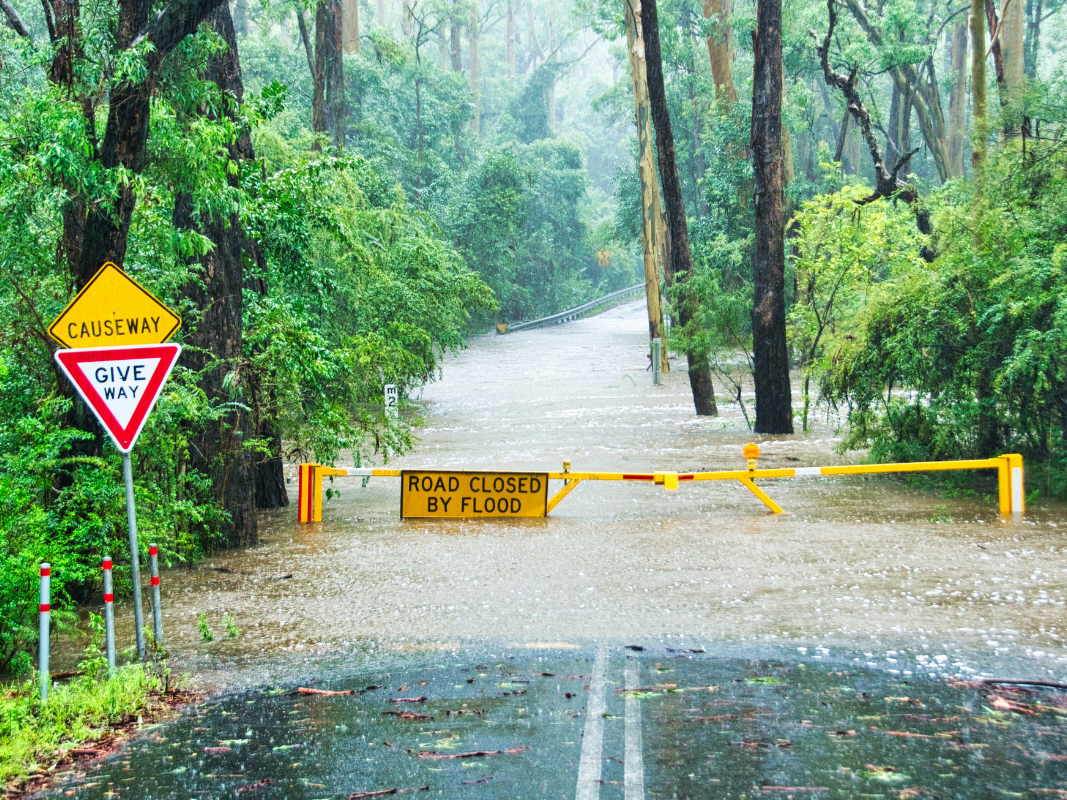
FRRR has supported remote, rural and regional communities across the country prepare for and recover from natural disasters since 2006. To date, FRRR has distributed more than $26 million for community-led disaster recovery and resilience initiatives, including more than $4 million for projects supporting recovery from the 2019-20 bushfires.
Natalie Egleton, CEO of FRRR, said the Foundation stands ready to support the recovery of flood-affected rural regions of NSW and Queensland.
“It’s hard to fathom that rural communities could face any more challenges than they have in the past year, but sadly they are. Many places devasted by the floods have also been dealing with the impacts of drought, the bushfires, and COVID-19 restrictions,” Ms Egleton said.
“In terms of disaster recovery, FRRR’s approach is to provide support to local community groups and non-profits where there are gaps or quick responses needed in the short term, however we focus the majority of funds on the medium-to-long term recovery and future preparedness efforts of rural communities. Funding medium to long-term recovery ensures that resources are available to help communities beyond the immediate needs that arise during the emergency.
“From our experience, we know disasters have a long-lasting impact – it could take a decade or longer. As recovery gets underway, communities will have different concerns and needs, meaning that recovery will happen at different rates, depending on the community and local priorities.
“Donations to our Flood Recovery Appeal will help to fund a diverse range of initiatives that reflect the needs the community identifies, but it could include rebuilding infrastructure, supporting vulnerable community members and the overall mental health of locals, providing opportunities for locals to reconnect and share their experiences, as well as looking at ways of improving resilience and how the community can prepare for future disasters,” Ms Egleton explained.
FRRR’s programs and partnerships in flood-affected communities are already in place or ready to scale up, including:
- Strengthening Rural Communities: a flexible national grant program with a targeted bushfire recovery stream, now to be expanded with a flood recovery stream to support short, medium and long-term recovery.
- Back to School: a partnership program with place-based organisations such as Community Foundations that provides K-mart, Target, and local business vouchers for school supplies that directly helps children and families.
- Disaster Resilience & Recovery Fund: an invested fund enabling support to be provided for many years to come. Fund earnings are distributed via FRRR’s grant programs for medium-to-long term recovery.
“In the face of these successive disasters, the last year has also shone a light on the generosity of Australians. Australians want to lend a hand, even though it’s been tougher than usual for many, given COVID-19.
“We hope that this same desire to give will continue in the face of this latest disaster as these communities will need support long after the waters have receded,” Ms Egleton said.
Donate to FRRR’s Flood Recovery Appeal here.

